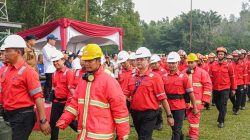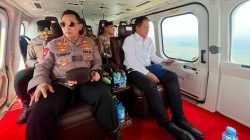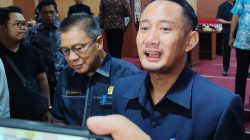Empowering Women in Politics: A Roundtable Workshop in Namibia
A significant roundtable workshop aimed at enhancing the leadership and decision-making skills of women parliamentarians in Namibia officially commenced on Tuesday in the coastal town of Swakopmund. This three-day event, themed “Women in Politics and Decision-Making Roles as Members of the National Assembly,” brings together female members of the National Assembly for peer learning, mentorship, and strategic planning focused on gender-responsive governance.
Among the notable participants are the speaker of the National Assembly, Saara Kuugongelwa-Amadhila, Education Minister Sanet Steenkamp, Sadc Parliamentary Forum Secretary-General Boemo Sekgoma, Cabinet ministers, and other Members of Parliament. The collaboration between the Ministry of Gender Equality and Child Welfare (MGECW) and the International Institute for Democracy and Electoral Assistance (International IDEA) has resulted in this important gathering, which follows the historic election of Namibia’s first female President, Netumbo Nandi-Ndaitwah, earlier this year.
The workshop seeks to capitalize on Namibia’s growing momentum towards inclusive governance. With women now occupying 40% of the seats in the National Assembly (39 out of 96 members), the country ranks among the top ten globally for women’s representation in national parliaments. This achievement highlights the progress made but also underscores the need for continued efforts to ensure that women can effectively influence policy and governance outcomes.
The roundtable aims to empower new and returning female MPs by strengthening their capacity in law-making, representation, and oversight. Over the course of the workshop, participants will engage in practical sessions and discussions on a range of topics including understanding the Gender Equality and Equity Policy (2025–2035); navigating parliamentary business and procedures; the role of gendered social norms in politics; gender-responsive budgeting and planning; the effectiveness of parliamentary committees; media engagement and public outreach; and the role of parliamentarians in international and regional governance frameworks.
Facilitators and speakers include the secretary general of the Sadc Parliamentary Forum, Boemo Sekgoma, senior officials from the MGECW, seasoned parliamentarians, legal experts, and representatives from International IDEA. Namibia’s Minister of Gender Equality and Child Welfare, Emma Kantema, is expected to officially open the workshop on Wednesday. High-profile contributors include Lydia Indombo, executive director of MGECW; Rumbidzai Kandawasvika-Nhundu, principal adviser at International IDEA; and Gram Matenga, regional head of programmes at International IDEA.
The roundtable addresses the urgent need for sustained investment in women’s political leadership. While the numerical gains in representation are commendable, organizers argue that meaningful transformation requires equipping women with the tools, confidence, and networks to influence policy and governance outcomes. The workshop aligns with Namibia’s recently adopted National Gender Policy (2025–2035), which mandates the integration of gender equality across all spheres of public life. It further builds on regional and global frameworks such as the Sadc Protocol on Gender and Development, the African Union Agenda 2063, and the Beijing Declaration and Platform for Action.
A unique feature of the roundtable is its focus on experiential learning, allowing women parliamentarians to share personal journeys, challenges, and lessons while fostering solidarity and collaboration across party lines. Sessions on media communication, committee participation, and oversight roles are designed to enhance public accountability and ensure women’s voices are amplified in both national and international platforms.
The event concludes on Wednesday with a session dedicated to intra- and cross-party networking, exploring how women MPs can build sustainable alliances and maintain an active women’s parliamentary caucus. This final session aims to strengthen the collective impact of women in politics and ensure continued progress toward gender equality in governance.







